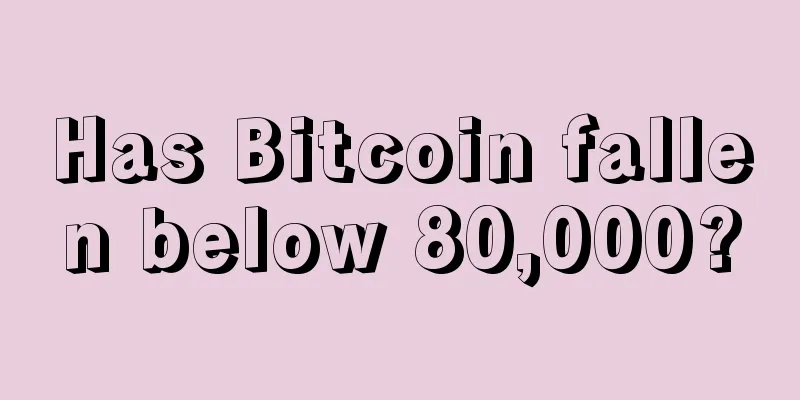Barclays is actively promoting the development of blockchain technology in Africa

|
Editor's note: Compared with other regions, banks in Africa started late in the Fintech (financial technology) field. Most of the financial services that Africans are exposed to come from telecom operators, such as Safaricom's M-PESA. However, banks here are gradually using the African continent as a testing ground for emerging financial technologies, such as Bitcoin and blockchain. See what Barclays Bank says and does.
Blockchain is a hot topic in the region’s fintech innovation hubs, such as Rand Merchant’s Alphacode in Johannesburg, which held the Afrikoin conference last December and is running a fintech accelerator this year. Barclays’ Rise center in Cape Town, which caters to fintech startups, will host a blockchain conference for African fintech on the 25th of this month. Blockchain is a "distributed ledger" that tracks global Bitcoin transactions. It can ensure the transparency of all transactions and prevent transactions from being tampered with because all these transactions are stored on computers around the world and not kept by a single central agency. Vinny Lingham says:
South African entrepreneur
In order to stay at the forefront of this emerging technology, Barclays Bank opened a Rise branch in Africa in December last year, the first branch of its global innovation network in Africa. The goal is to work with entrepreneurs in the fintech field to provide Barclays with ideas.
Barclays Africa, in which Barclays Plc holds a 62% stake and has branches in 13 countries across Africa, is hoping to use the innovation accelerator to break out of the traditional mindset of the 300-year-old bank.
Barclays’ first blockchain technology partner in Africa is Consent, a startup. Shaun
Consent uses blockchain to improve the fidelity of personal medical records between different databases. Conway believes that in the short term, Barclays can use their system to achieve compliance such as know your customer (KYC) principles, and in the long term, it can be used to maintain customer identity security. Barclays has signed a one-year contract with Consent to create a proof of concept project for Barclays worth more than $500,000. Barclays is working with several blockchain startups around the world, but they see Africa as being most special.
A digital economy based on blockchain and Bitcoin could bring a new level of accountability to African leaders. “If digital currencies are widely adopted by African countries, it could significantly reduce government corruption and provide better transparency and information to African citizens.” Alliy said it was important to work with established companies. Fintech startups face many compliance requirements in Africa, especially as regulations vary from country to country. Handling user funds requires bank-level security, and fintech talent is highly specialized and therefore expensive. "Can you raise enough money to run? It costs a lot of money to build trust and brand in the industry." Venture capitalists are still relatively scarce in the region, and they tend to favor established companies over early-stage companies. Banks are filling the gap at the early stage, backing startups that have good ideas but lack funding. Original article: http://qz.com/618674/africas-big-banks-are-betting-on-fintech-startups-and-bitcoin-to-beat-disruption/ |
<<: Blockchain technology and fascism
>>: Trumpchain Criticizes Bitcoin Blockchain Expansion
Recommend
Wu said weekly mining information: 0313-0320
1. At the Chengdu conference on March 12, Bitmain...
Filecoin Interpretation | Please give it enough time and patience
Back in the days of dial-up Internet, it took two...
Women who will be happy if they marry later
Women who will be happy if they marry later Marri...
What kind of woman has good fortune?
I believe that everyone in life desires good fort...
Understanding Chia mining economic model in one article
Summary: There is no cap or limit on the total am...
Ear shape reveals your personality and fortune
The ear is one of the five senses and represents ...
Knowing a person's fate through his eyes
When looking at a person's face, it is also i...
Ethereum miner fees fall 60% after this week's crash, but network remains congested
One good thing that came from the Ethereum price ...
The triangular console was unveiled at CES Unveiled and was highly praised by the CES chairman
At 5:00 pm on January 7, local time in the United...
Monero will deploy a new algorithm "RandomX" to fight ASICs in October 2019
In order to solve the problem of centralized mini...
People with red lips and white teeth dare to love and hate and are good at expressing themselves
People with red lips and white teeth are often ve...
One in five young Koreans is buying Bitcoin. “Middle-aged people are speculating in real estate, but we are not allowed to speculate in cryptocurrencies?”
If I hadn’t taken the risk, I might never have be...
The 39th live interview of Wali Wali - Dialogue with Kendall Mao, Dean of Ontology Research Institute
Walli Finance invites you to witness the blockcha...
Marriage line bifurcation diagram
What exactly is the marriage line? What does the ...
When blockchain no longer requires mining machines, will Bitmain sink?
At the end of March this year, Bitmain launched a...









